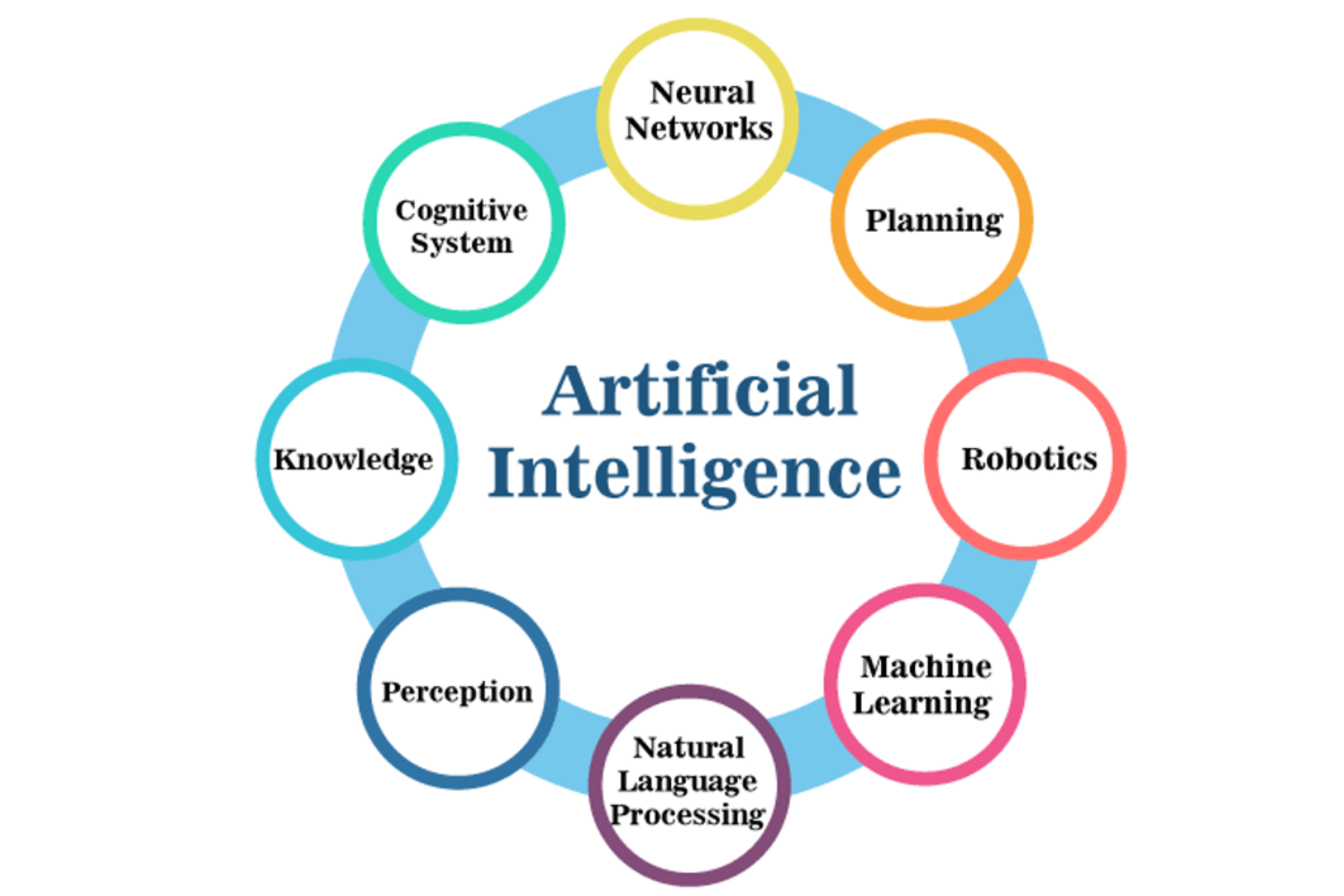
Artificial Intelligence (AI)
Artificial Intelligence (AI) refers to the development and implementation of computer systems or algorithms that possess the ability to perform tasks typically requiring human intelligence. These tasks encompass a wide range of cognitive functions, including learning from data, reasoning, problem-solving, understanding natural language, perception, and interacting with the environment. At its essence, AI seeks to create systems that can replicate or mimic human-like intelligence in various contexts, aiming to achieve levels of adaptability, flexibility, and efficiency comparable to, or even surpassing, human capabilities.
One of the foundational concepts within AI is machine learning, a subset of AI that focuses on the development of algorithms allowing computers to learn from data patterns and make predictions or decisions without explicit programming. Deep learning, a further subset of machine learning, utilizes artificial neural networks with multiple layers to learn complex representations of data, enabling the recognition of intricate patterns in images, speech, and text. These technologies have driven significant advancements in areas such as image recognition, natural language processing, and autonomous driving.
Natural language processing (NLP) is another critical aspect of AI, involving the development of algorithms and models that enable computers to understand, interpret, and generate human language in a manner that is contextually relevant and meaningful. NLP facilitates communication between humans and machines through voice assistants, language translation services, chatbots, and sentiment analysis tools, among others, revolutionizing the way we interact with technology.
Reinforcement learning is a paradigm within AI where agents learn to interact with an environment to achieve specific goals through trial and error, receiving feedback in the form of rewards or penalties. This approach has proven successful in domains such as game playing, robotics, and industrial automation, enabling machines to learn optimal strategies for complex tasks through continuous interaction with their surroundings.
Ethical considerations loom large in the development and deployment of AI systems. Concerns about privacy, bias, transparency, accountability, and the potential for job displacement necessitate careful consideration and regulation of AI technologies. As AI continues to evolve and permeate various aspects of society, it is imperative to ensure that these technologies are developed and utilized in a manner that prioritizes the well-being and safety of individuals and communities while fostering innovation and progress.

In conclusion, Artificial Intelligence (AI) represents a groundbreaking field of study and development that aims to replicate and enhance human-like intelligence in computer systems. Through machine learning, deep learning, natural language processing, and reinforcement learning, AI technologies have advanced significantly, enabling computers to perform tasks ranging from data analysis to language translation with remarkable proficiency. However, as AI continues to evolve, it brings forth ethical considerations regarding privacy, bias, transparency, and societal impact. Moving forward, it is crucial to approach the development and deployment of AI with careful consideration for ethical principles, ensuring that these technologies benefit society while minimizing potential risks. Ultimately, the ongoing advancement of AI holds tremendous promise for revolutionizing numerous industries and aspects of daily life, provided it is guided by responsible and ethical practices.

